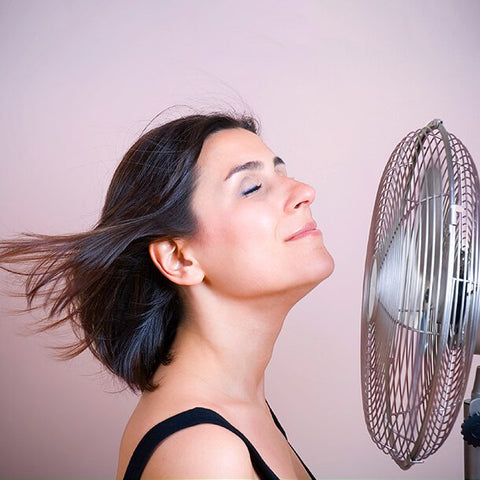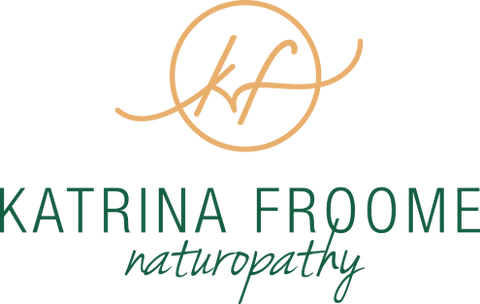Understanding Histamine: Impact on your immune system, skin, gut health and why it flares up more during perimenopause
What is Histamine?
Histamine is a chemical substance that is both a neurotransmitter and a hormone. It is a mediator of wakefulness, alertness, reaction times, sleep cycles, memory, stress, sexual function and digestion. Histamine is a natural compound that plays a significant role in our immune system, skin health, and gut functions. It is produced by Mast Cells and are involved in nerve transmissions and immune response regulation.
When Mast Cells are triggered, they release histamines, which then trigger those responses we all know so well – itchiness, puffiness, swelling and hives which is the immune response. We’re all familiar with antihistamines – those medications that stop the “itchy, sneezy, watery eyes”.
Histamine reactions can affect people of all ages.
Impact on the Immune System
Histamine is involved in regulating the body's response to allergens and pathogens. When the immune system detects a threat, such as an allergen, it releases histamine, triggering an inflammatory response. This immune reaction is essential for protecting the body, but excessive histamine release can lead to allergic reactions, like sneezing, itching, or hives.
Effect on Skin Health
Histamine also has a profound impact on our skin. An excess of histamine can cause skin inflammation and irritation, leading to conditions like eczema, psoriasis, or rosacea. By understanding the role of histamine, we can explore ways to support healthier and more radiant skin.
Influence on Gut Health
In the digestive system, histamine is involved in stimulating stomach acid production, which aids in food digestion. However, for some individuals, histamine intolerance can occur, where the body struggles to break down and eliminate excess histamine. This can lead to digestive issues such as bloating, abdominal pain, and diarrhea, Small Intestinal Bacterial Overgrowth (SIBO) is linked to histamine intolerance. People with Inflammatory Bowel Disease and Candida overgrowth can be susceptible to histamine sensitivity.
Where Do You Find Histamines?
Basically in all the good stuff! 🙂 I’ve noticed most people tend to react most strongly to the fermented foods on this list, but it’s important to know the other food triggers too.
- Fermented, cured, or soured foods, such as yogurt, luncheon meat, pickles, and sour cream
- Aged cheeses, such as cheddar and parmesan, and smoked fish
- Citrus fruit and dried fruits such as apricots and raisins
- Alcoholic beverages, especially wine and beer (red faces and necks are a tell tail sign!)
- Certain nuts, including walnuts, peanuts, and cashews
- Avocados, eggplant, spinach, tomatoes and chocolate

Understanding Histamine Flare-ups during Perimenopause
Perimenopause is a transitional phase that occurs a few years before menopause when the ovaries gradually produce less estrogen. This hormonal shift can lead to various symptoms, and one of them is histamine flare-ups. Histamine is a natural chemical released by the body in response to allergens or inflammation. It plays a crucial role in the immune response but can also cause discomfort when not properly regulated.
Common Histamine-related Symptoms during Perimenopause
- Hot Flashes: Histamine can trigger vasodilation and result in sudden feelings of heat, leading to hot flashes.
- Allergies: Increased histamine levels can make the body more sensitive to allergens, leading to heightened allergic reactions.
- Headaches: Histamine can dilate blood vessels in the brain, leading to headaches and migraines.
- Sleep Issues: Histamine can interfere with sleep patterns, causing difficulties falling asleep or staying asleep. This can also be a reason why drinking alcohol affects your sleep more during this transition.
- Skin Irritations: Elevated histamine levels can cause skin rashes, itching, or hives. There is a link to Rosacea and histamine sensitivity, you can experience a bright red face and predominantly where you have Rosacea when you have eaten or drunk something that has caused a histamine reaction.
- Digestive Problems: Histamine can affect the gut, leading to symptoms like bloating, diarrhea, or constipation. Gut dysbiosis makes things much worse and people with leaky gut or SIBO, or some other type of gut bacterial imbalance are much more prone to histamine sensitivity.
Naturopathic Approach to Managing Histamine Flare-ups
I take a holistic approach to help my clients manage histamine flare-ups during perimenopause. My naturopathic treatments focus on addressing the root causes and promoting overall well-being. Some of the strategies that I recommend include:
- Gut Health: Since the gut plays a vital role in histamine metabolism, I offer guidance on improving gut health through gut-healing protocols. In most cases, having SIBO will contribute to having histamine reactions.
- Hormonal Balance: As hormonal changes play a significant role in perimenopause, histamine can cause your periods to become heavier and can also cause you to have cramps and painful periods. PCOS can be linked in with histamine intolerance as well. As a naturopath I can suggest natural hormone-balancing techniques and supplements to support a smoother transition.
- Dietary Modifications: There are several dietary choices that I have for my clients to follow, such as, an anti-inflammatory diet and identify and avoid histamine-rich foods, low histamine diet and SIBO Biphasic Diet.
- Certain Foods: Foods like aged cheese, bone broths that are cooked for over 12 hours, fermented foods and processed meats can trigger histamine release. Leftovers can also cause some people to react, needing to go to the toilet after eating and experiencing diarrhoea or loose stools is a good indication that your are sensitive to histamine. Meal prepping for the week isn't a good idea for those suffering from histamine intolerance.
- Supplements: Consider incorporating supplements like quercetin, vitamin C, and DAO (diamine oxidase) to aid in histamine metabolism and alleviate intolerance symptoms.
- Herbal Support: Herbal remedies like stinging nettle to reduce histamine levels and alleviate symptoms.
-
Stress Management: Stress can exacerbate histamine reactions, so I emphasize stress-reducing techniques like meditation, yoga, and mindfulness to promote relaxation and balance.
-
Lifestyle Adjustments: I encourage my clients to maintain regular exercise routines and prioritize adequate sleep, as these factors can positively impact histamine regulation.
Remember, every person's experience during perimenopause is unique, so my naturopathic treatments are tailored to individual needs. If you or someone you know is struggling with histamine flare-ups during perimenopause or in general, I'm here to help and to offer personalised support and guidance.
To book your consultation please click on the link below
Work With Me – Katrina Froome Naturopathy
Yours in health and wellness,
Katrina xxx

